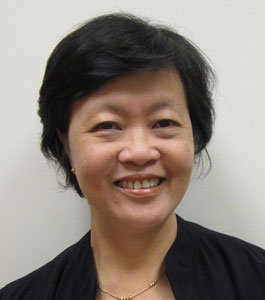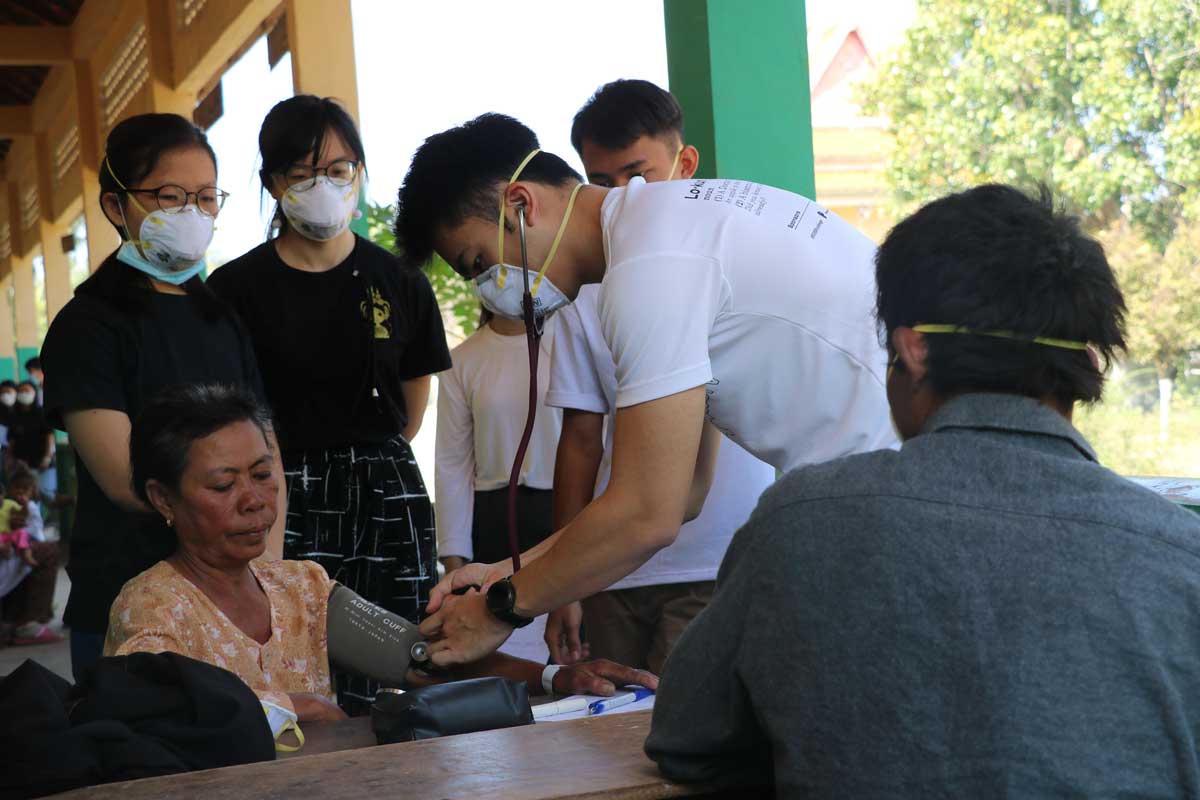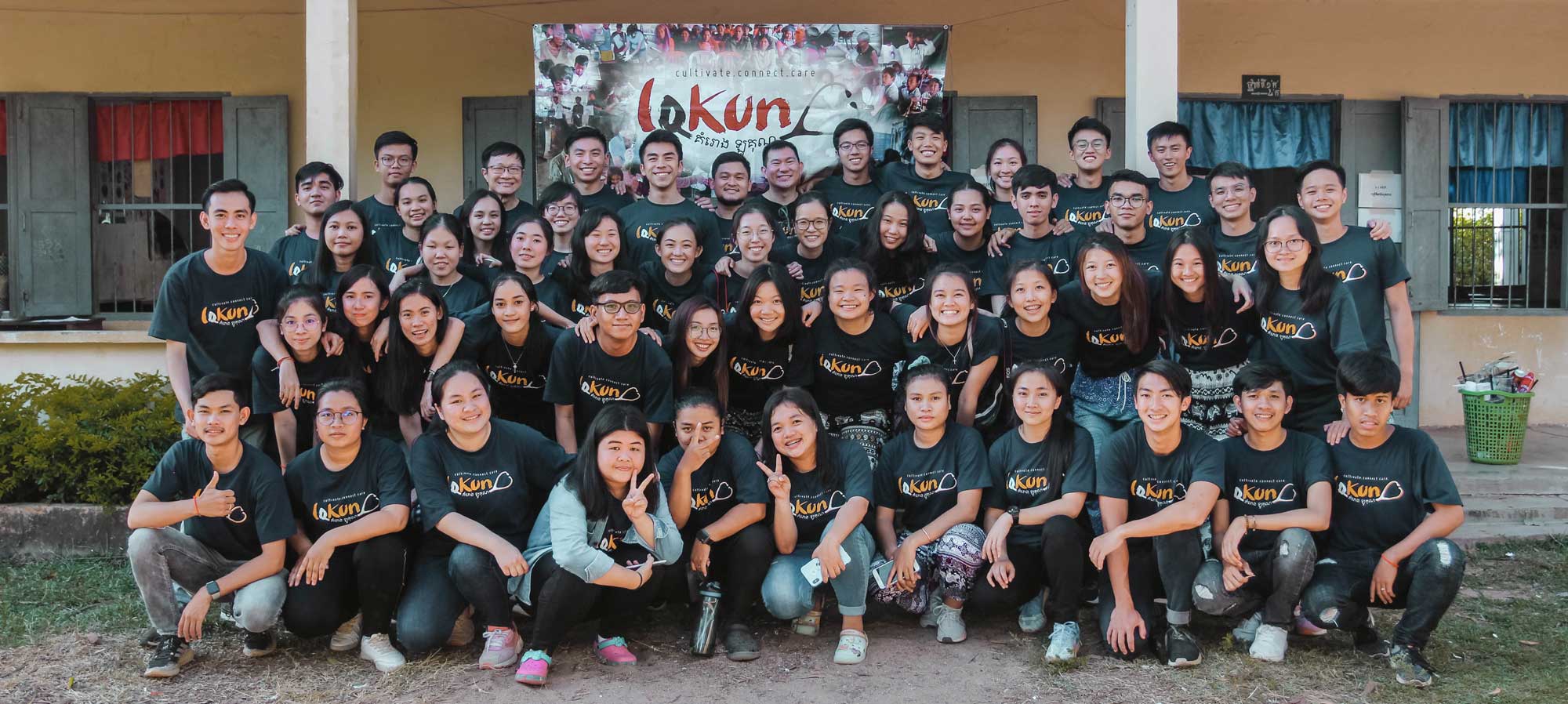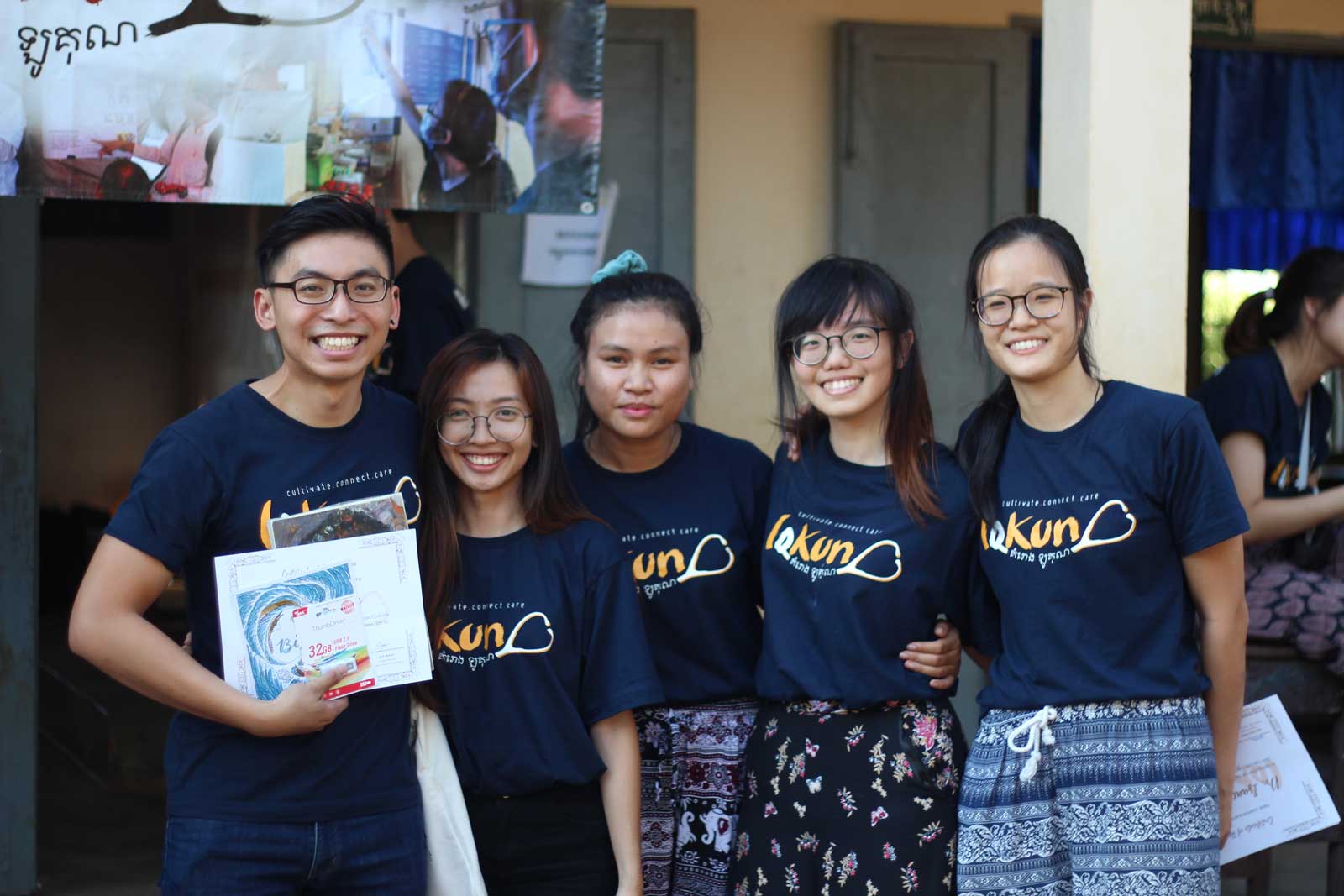Project Lokun: Medical Students With A Heart For Cambodia

As a Lokun volunteer surveys the locals through our door-to-door Health Needs Assessment (HNA), she looks out for areas to opportunistically educate them on the spot. This volunteer has been supporting the project for 5 trips now, seen here speaking to a villager with a pamphlet.
by Tricia Koh and Kalista Wan
Phase II Medical Students and Project Directors
Established in 2006, Project Lokun is a biannual medical humanitarian project to Pursat Province, Cambodia, jointly organised by students from the NUS Yong Loo Lin School of Medicine and University of Puthisastra (Phnom Penh).
In December 2019, Project Lokun embarked on our 26th trip, affectionately known to us as L26. With each trip, the volunteers aim to embody their mission statement to Cultivate, Connect and Care, as they cultivate the importance of health and disease management through education, connect the villages back to their own local healthcare system and care for the villagers by providing primary healthcare services in the short term.

Lokun doctors and students serving the villages at Lokun clinics.

The Lokun committee and our volunteers comprising NUS Medicine students, doctors and physiotherapists, with smiles all round on the last day of Lokun clinics.
Village clinics are key to our efforts in providing the villagers in Pursat with free, accessible healthcare. This is further supplemented by our referrals system which links villagers back to their local healthcare system. In the recently concluded L26, Project Lokun worked with three Singaporean doctors, a Cambodian nurse and two Malaysian physiotherapists to conduct free clinics.
One new initiative implemented with the clinics was the inclusion of physiotherapists. After analysing the data collected from previous trips, the team observed that musculoskeletal (MSK) problems made up a large proportion of the cases seen at Lokun Clinics. Previously, only symptomatic treatment was provided through the prescription of certain drugs or creams by our doctors. In L26, our Clinics Committee decided to expand the services provided at Lokun Clinics and recruited physiotherapists who could provide a more personalised and interactive approach for these patients with MSK problems. Over the four days, Lokun Clinics served 309 villagers across four villages in Pursat Province: Prey Omal, Takeo, Toul Makak and Kampong Luong.
The other arm of Project Lokun’s outreach is Education, targeted at primary schools and adult learning. In L26, we reached out to 840 primary school students across the four villages we served. Carefully developed and refined over the years based on feedback and data gathered, our health education syllabus were designed to meet the needs of primary school students. Some of the topics covered include body hygiene, water sanitation and puberty. Our lessons are made more engaging with the use of flipcharts, worksheets and various hands-on activities.
During this trip, Project Lokun arranged a meeting with an official from the Pursat Department of Education Youth and Sport. We were able to gain more insight into their teaching pedagogies and exchanged teaching resources. We also received valuable feedback on our education syllabus and materials. Moving ahead, we aim to fine-tune our curriculum with reference to their official education materials and feedback gathered, as well as explore further collaboration to improve our content and methods of education.
L26 was a trip where we saw great strides taken forward by our three new Departments: Health Needs Assessment (HNA), Supply, and Partnerships.
The HNA department designs and runs the door-to-door survey Project Lokun conducts every trip. Having concluded our general health HNA the past trips, we piloted our HNA survey on tuberculosis, focused on the health-seeking behaviour and knowledge of villagers relating to this major disease in Cambodia. In the process of drafting a survey, we came under the mentorship of experienced doctors and learnt so much about navigating the intricacies linked to producing a good survey that would allow us to collect meaningful data.
The Supply and Partnerships Departments are responsible for working with local partners such as hospitals, pharmacies and NGOs. Working with local players help us understand the current healthcare landscape so that our initiatives complement and are more applicable to the local context. By conducting Health Facilities Assessments (HFA) at the various health facilities around the region and meeting with the various local healthcare stakeholders, we had a better sense of the local environment and established meaningful collaborative relationships at the same time. We believe in partnering with the local stakeholders and are excited to see fruitful partnerships materialise in the trips ahead!
As Project Lokun continues to establish itself in Cambodia, we place paramount importance on developing and nurturing our relationship with our Cambodian university partner, the University of Puthisastra (UP). We are working more closely and in tandem with the Lokun Cambodian Wing (LCW) than before—not only as co-planners and executors of Lokun, but also as treasured friends who have faced difficulties and challenges together. As we advance trip-by-trip, it is our hope to have our Cambodian counterparts take on more and grow into their own, so that we can truly achieve our project goal of becoming sustainable.

Lokun Heads from both the Singapore and Cambodian Wing showing our appreciation for our doctors who came to serve.
